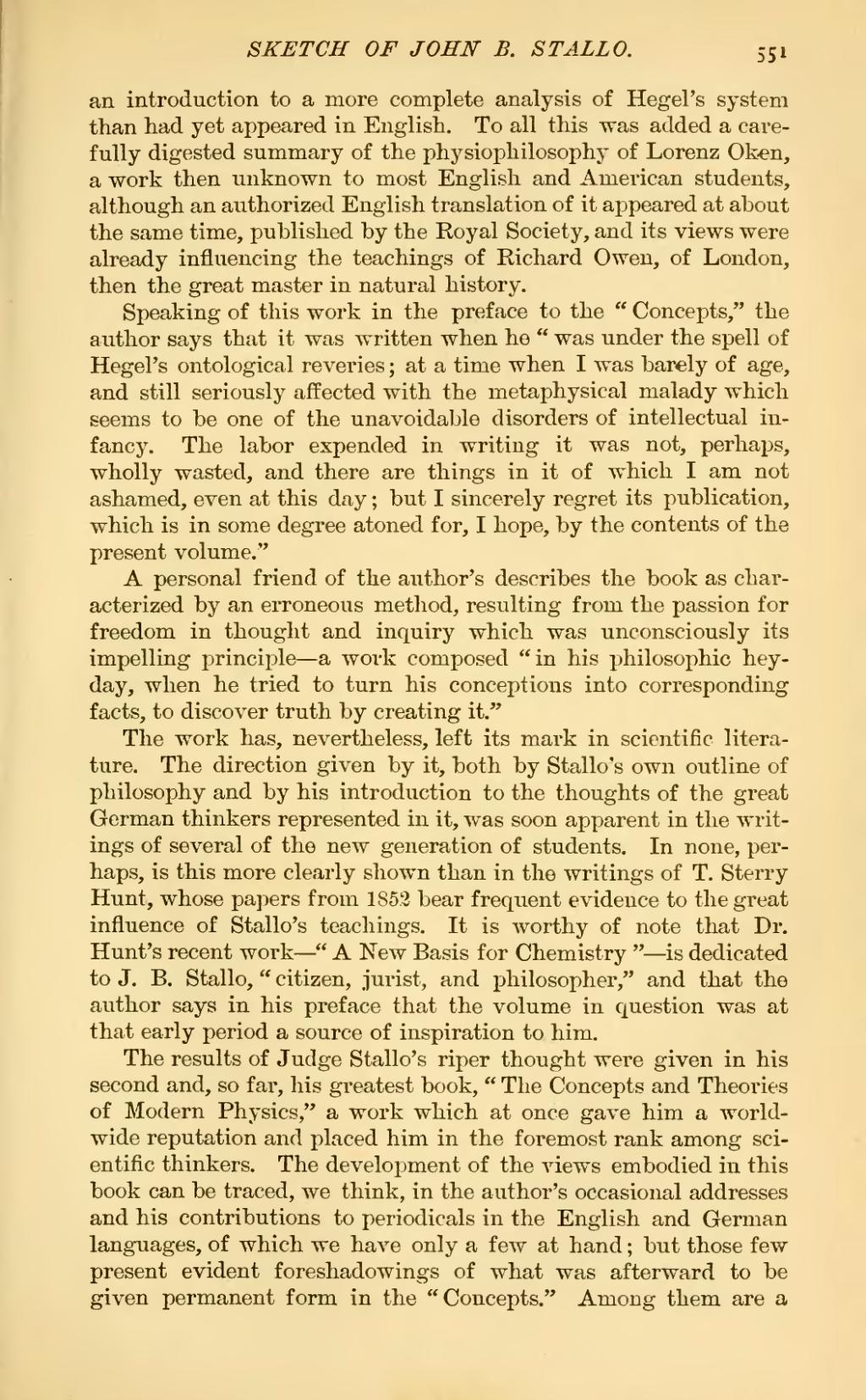an introduction to a more complete analysis of Hegel's system than had yet appeared in English. To all this was added a carefully digested summary of the physiophilosophy of Lorenz Oken, a work then unknown to most English and American students, although an authorized English translation of it appeared at about the same time, published by the Royal Society, and its views were already influencing the teachings of Richard Owen, of London, then the great master in natural history.
Speaking of this work in the preface to the "Concepts," the author says that it was written when he "was under the spell of Hegel's ontological reveries; at a time when I was barely of age, and still seriously affected with the metaphysical malady which seems to be one of the unavoidable disorders of intellectual infancy. The labor expended in writing it was not, perhaps, wholly wasted, and there are things in it of which I am not ashamed, even at this day; but I sincerely regret its publication, which is in some degree atoned for, I hope, by the contents of the present volume."
A personal friend of the author's describes the book as characterized by an erroneous method, resulting from the passion for freedom in thought and inquiry which was unconsciously its impelling principle—a work composed "in his philosophic heyday, when he tried to turn his conceptions into corresponding facts, to discover truth by creating it."
The work has, nevertheless, left its mark in scientific literature. The direction given by it, both by Stallo's own outline of philosophy and by his introduction to the thoughts of the great German thinkers represented in it, was soon apparent in the writings of several of the new generation of students. In none, perhaps, is this more clearly shown than in the writings of T. Sterry Hunt, whose papers from 1852 bear frequent evidence to the great influence of Stallo's teachings. It is worthy of note that Dr. Hunt's recent work—"A New Basis for Chemistry"—is dedicated to J. B. Stallo, "citizen, jurist, and philosopher," and that the author says in his preface that the volume in question was at that early period a source of inspiration to him.
The results of Judge Stallo's riper thought were given in his second and, so far, his greatest book, "The Concepts and Theories of Modern Physics," a work which at once gave him a worldwide reputation and placed him in the foremost rank among scientific thinkers. The development of the views embodied in this book can be traced, we think, in the author's occasional addresses and his contributions to periodicals in the English and German languages, of which we have only a few at hand; but those few present evident foreshadowings of what was afterward to be given permanent form in the "Concepts." Among them are a
